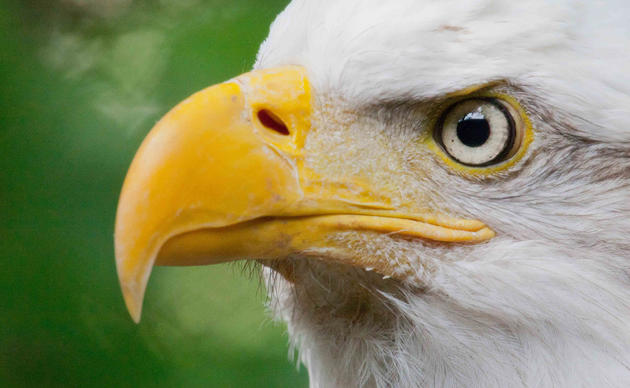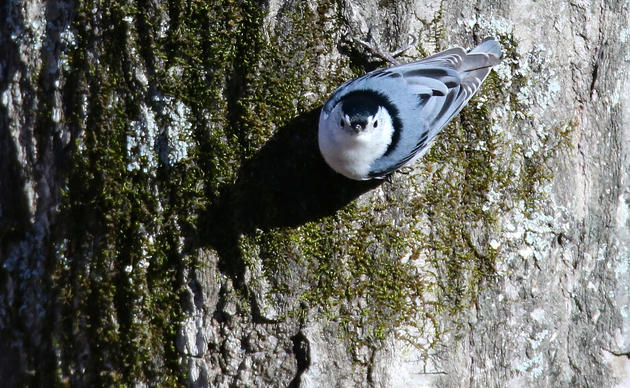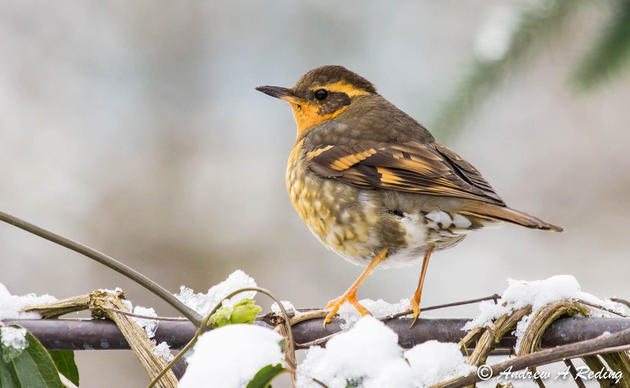Seattle, WA (June 1, 2017)—President Trump today announced the withdrawal of the US from the Paris climate accord, a landmark accord reached in 2015 between 195 countries designed to curb global greenhouse gas emissions by holding the increase in global average temperature to below 2 degrees C above pre-industrial levels.
“The announcement to withdraw from the Paris climate agreement is a devastating setback for global efforts to mitigate the growing threat of climate change, and we are deeply disappointed in the lack of national leadership on this issue,” said Gail Gatton, executive director of Audubon Washington. “Protecting birds and people from the effects of climate change requires more action, not less. Now, more than ever, our state legislature, local business leaders, and non-profits such as Audubon Washington must aggressively combat this urgent threat head on. One of the most immediate steps we can take in Washington state is to pass a carbon tax during this legislative session. A price on carbon emissions will reduce greenhouse gas emissions in Washington State and spur the development of new, renewable energy alternatives, and represents an important first step toward making meaningful progress toward carbon reduction in Washington State and protecting both birds and people in a warming world.”
In 2014, Audubon scientists published the Birds and Climate Change Report, which describes how climatic suitability for 314 species of North American birds are shifting and shrinking to the point where these species may disappear from their current ranges by 2080. Species include our national symbol, the Bald Eagle, and other birds like the Rufous Hummingbird, Trumpeter Swan, and Sage Thrasher.
On a local level, the data pinpoints 92 "climate-endangered" bird species that occur in Washington state that may lose 50 percent or more of their habitat by 2050, according to the projections. Pulling out of global commitments to address climate change and reduce carbon emissions will push many of the birds Washingtonians know and love to extinction.
“The science is settled, the solutions are plentiful and birds tell us we need to act on climate right now to avoid catastrophe," said Dr. Gary Langham (@garylangham), Audubon's chief scientist and lead author of the Birds and Climate Change Report. "The sad alternative is a future with less birdsong and more regret."
In response to the alarming findings of the Birds and Climate Change Report, Audubon Washington has been engaging its bipartisan members and supporters to protect the places that birds need today and in the future, and reduce carbon pollution causing climate change by establishing a price on carbon emissions in Washington state.
“Scrapping the Paris climate agreement is an abdication of American leadership in the fight against the biggest threat facing people and birds,” said David Yarnold (@david_yarnold), Audubon’s president and CEO, in response to the White House's decision to withdraw the United States from the Paris Climate Accords, the world's most ambitious greenhouse gas-reduction agreement to date. “Our kids and grandkids are the losers in this misguided decision. So are 314 species of birds that Audubon already knows are at risk because of climate change. We don't believe that's what Americans voted for in November."
About Audubon Washington
Established in 1981, Audubon Washington works statewide with its 25 independent chapters and 26,000 members on the conservation of the sagebrush shrub steppe ecosystem in Eastern Washington, protection of coastal estuaries, and actions that address climate change, the number one threat to birds today. Through the Seward Park Audubon Center, we provide science, nature and environmental education programs for youth and families. Learn more how to help at http://wa.audubon.org/ and follow us on Twitter and Facebook.
###
Contact:
Gail Gatton, Executive Director, Audubon Washington, 206-652-2444
Samara Villasenor, GreatWork Strategic Communications, 425-255-0890



